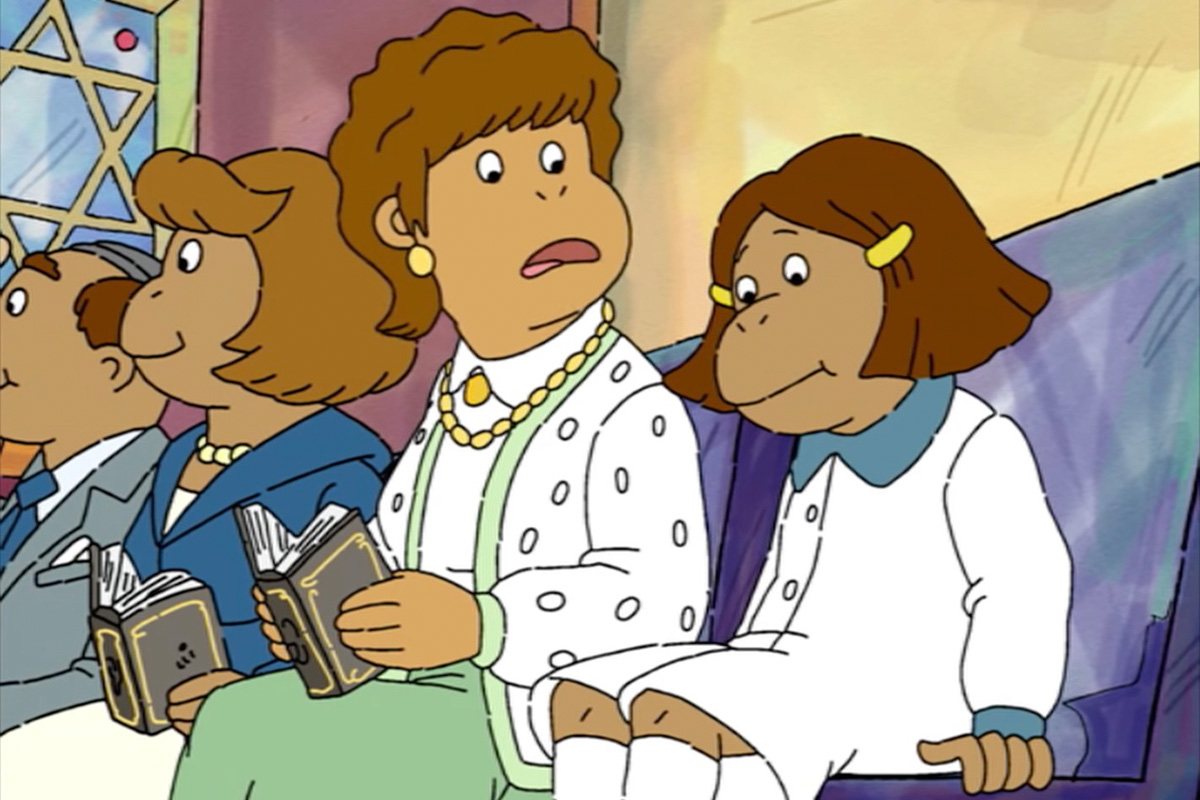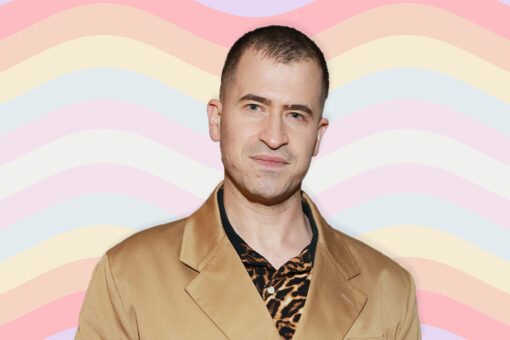After 25 years of television, PBS Kids recently aired the series finale of “Arthur.” Social media has been awash with commentary on the finale, which ended with a flash forward scene showing the characters in 20 years. Think pieces galore have since been published about what made “Arthur” so special: the way they handled complex topics, the meme-ability of the characters, the consistency in the messaging. But one thing that has stuck with me all these years was how they showed Judaism.
When people hear “’90s cartoons” and “Jewish,” they likely first think of Tommy Pickles and his family from “Rugrats,” probably the most visibly interfaith Jewish family on television in that decade. No shade to mishpachat Pickles (I still watch their Hanukkah and Passover episodes every year), but Tommy was a baby. As a kid, it would have been really disheartening if the only character in mainstream media who shared such an important part of my identity was a literal infant. Which is where Francine Frensky comes in.
For the uninitiated, Francine Alice Frensky is the anthropomorphic monkey best friend of Arthur Read, the titular character of “Arthur.” She has a brown bob haircut held back with yellow clips and is most often seen wearing a red long sleeve shirt, jeans and red sneakers. She’s sporty, stubborn and sometimes a bit bossy. And she’s Jewish.
What was remarkable about Francine wasn’t just the fact that she was Jewish (though that is always a plus); it was the way that she was Jewish. She practiced Judaism in a way that I recognized. She was secular, but her Jewishness was still woven into her storylines. Judaism wasn’t her whole character, but it also wasn’t something that was ignored save for the requisite mentions during Christmas-themed episodes.
That balance, the lived experience of so many of us, is hard to find on TV or in movies. While representation has been improving over the past few years, it still seems that all too often, Jewish characters fall into one of two categories: characters whose Judaism only appears as a plot device, and characters who are Jewish, and that’s all there is to them. Not only did Francine and her family avoid falling into either of those tropes, but the Jewish practices shown in the episodes were realistic.
One of my favorite examples of this comes from how the show handles Yom Kippur. Francine tries unsuccessfully to fast for the holiday, having been thwarted in her efforts by a slice of pizza. (Who hasn’t been there, am I right?) She’s embarrassed about what happened and is worried that Bubbe, her grandmother, will think she’s a failure. However, when Francine arrives home, she finds Bubbe in the kitchen, eating a sandwich. Bubbe then reminds her that Judaism “forbids us to fast if it hurts our health.” This interaction has always stuck with me, because it is one of the rare examples of a show actually acknowledging one of the most significant aspects of Judaism: pikuach nefesh, the principle in Judaism that saving a life is more important than almost every other mitzvah. I can think of dozens of examples of media completely missing the mark on this one principle, but “Arthur” was able to capture it in a way that a kid could understand, and that was really special.
If Francine had shown up at my synagogue on a Shabbat morning, she would have easily blended in as just one kid in the gaggle of third graders perpetually wandering the hallways or playing cards in the coatroom. Bubbe could have been one of the many grandmothers who shared a table with my grandma at kiddush, sipping coffee and talking about their families. Her older sister and I may have been in the same Hebrew school class or gone to the same summer camp.
Francine never fit any of the stereotypes you normally see around Jews in the media; she wasn’t nerdy and her family wasn’t rich. She was just a Jewish kid making her way through life. I honestly didn’t expect to be getting emo about a show I haven’t regularly watched in almost two decades, but there was always something unique about “Arthur.” Even as an adult, watching an episode as I flipped through channels brought back a comfortable nostalgia. While I’m sad it’s over, I’m happy that I was born in a time that let me grow up with the kids of Elwood City.



